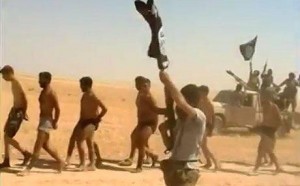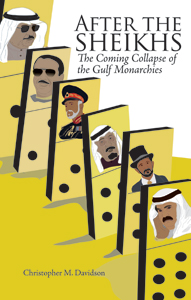The photographs and videos of the taking of Tabaqa Airbase and the killing of Syrian soldiers by Islamic State (IS) that are currently circulating belie the fact that the operation took IS time and cost them a good number of fighters at a key moment in their campaign.

Undoubtedly Tabaqa has helped IS consolidate its position around their Raqqa stronghold (having driven out the other surviving Syrian military outpost to the north of the city a few weeks earlier). In this sense, it fits with a logical IS strategy and as such is an important victory against the Syrian government. A few aircraft, missiles and other bits and pieces seems to have been ‘liberated’ as well, but it is not clear how easily IS will be able to operate these.
The real motive behind this costly and not very smooth operation may prove to be the seizing of the radar system. This is not to say that IS now intends to operate radar, or indeed that it has the ‘in-house’ ability to do so. It certainly might, but it is more likely that the urgency behind the operation was to ensure that the north of Syria (and thus most of the former border with Caliphate territories in Iraq) is now more or less a radar-free zone.
The political and military implications of this are significant. On a general level it means that the Syrian government won’t be able to resupply any remaining outposts or launch air attacks against IS convoys. But on a more macro level it effectively means that anyone can now fly in and out of this area of the Middle East.
This has at least three important implications:
- Any international discussions about seeking the permission of the Syrian government to use their airspace to bomb IS are now irrelevant as the Syrian government won’t be aware of trespassing into sovereign territory.
- Connected to the first point, this also means that Western governments (or rather hawkish elements within their establishments) no longer need to drum up support or convince electorates of the need to cooperate with Assad, ‘the lesser of two evils’ as he has been described in a broad media campaign over the past week. Assad’s cooperation can, for the time being, be bypassed.
- While claims are still made that IS is now chiefly a self-funding, bandit-based operation that relies on ‘liberated’ weapons and the sale of oil on the black market, this line of thinking seems to be an affront to basic reasoning and an effort to absolve or distract from key backers. On the contrary, I would argue that outside supplies and financial assistance have been provided, even if at the beginning, and such supplies can now reach IS more quickly and more discreetly than at any stage before the near-collapse of Syrian sovereign airspace.
 Christopher M. Davidson is Reader in Middle East politics at the School of Government and International Affairs, Durham University. He is the author of several books on the politics and international affairs of the Gulf states, including Abu Dhabi: Oil and Beyond, Dubai: The Vulnerability of Success, and, most recently, After the Sheikhs: The Coming Collapse of the Gulf Monarchies.
Christopher M. Davidson is Reader in Middle East politics at the School of Government and International Affairs, Durham University. He is the author of several books on the politics and international affairs of the Gulf states, including Abu Dhabi: Oil and Beyond, Dubai: The Vulnerability of Success, and, most recently, After the Sheikhs: The Coming Collapse of the Gulf Monarchies.